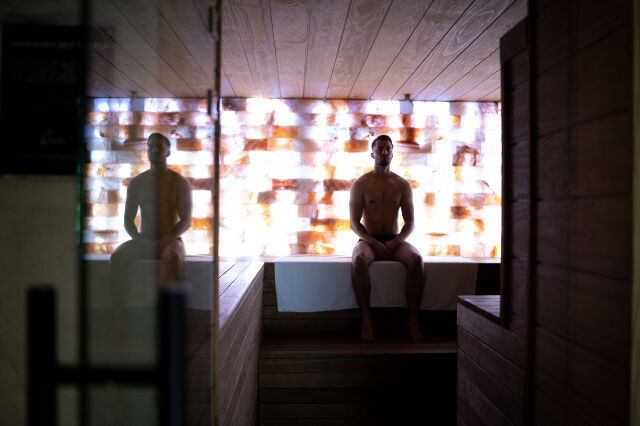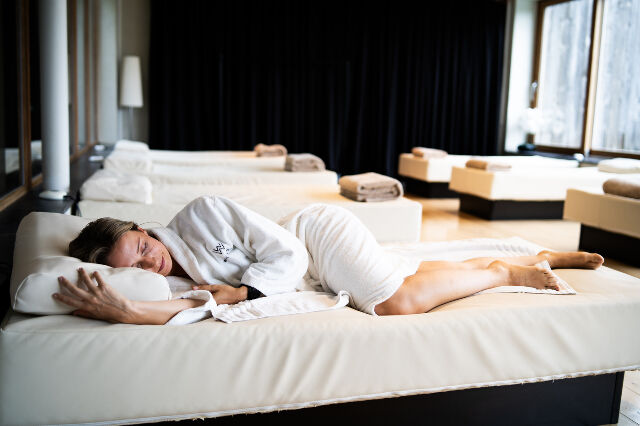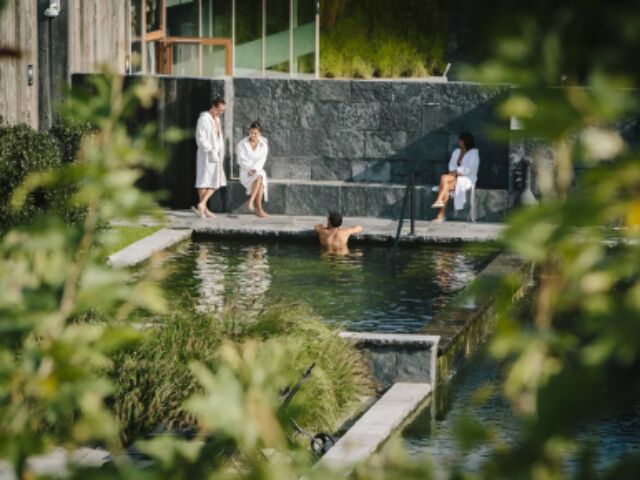The radiance of rest: how wellness transforms your skin
Your skin is much more than just an outer layer – it reflects your inner health. What you eat, how you sleep, and how much stress you experience all have an effect on your skin. More and more scientific research confirms that a holistic lifestyle, with attention to rest and well-being, visibly contributes to healthier skin.
From the effects of stress to the benefits of saunas and quality sleep – wellness is not a luxury, but a natural complement to your skincare routine.

The impact of stress on your skin
We all feel it sometimes: stress. But did you know your skin suffers just as much as you do? Prolonged stress increases your cortisol levels – the stress hormone that, according to recent research (Kim et al., 2024), triggers inflammation, reduces collagen production, and can even damage the DNA in skin cells.
The result? Skin that becomes drier, more sensitive, and duller – and more prone to acne or eczema. Curious how to ease that impact?

Heat and cold: the power of contrast
Saunas have been beloved for centuries – and now we know why. A study published in Complementary Therapies in Medicine (2023) shows that sauna therapy not only improves circulation, but also enhances the delivery of oxygen and nutrients to the skin.
Alternating between heat and cold – like a classic sauna session followed by a cold plunge – stimulates the lymphatic system and increases the elasticity of your blood vessels. The result: a refreshed complexion and a healthy, natural glow.

Scrubbing and steaming: exfoliation that works
A steam room or hammam goes deeper than relaxation alone. The heat opens your pores and prepares your skin for a thorough cleanse. During a scrubbing session, dead skin cells are removed, stimulating cell renewal and resulting in a smoother, more even skin texture.
According to dermatologists (Self.com, 2023), regular exfoliation – when properly tailored to your skin type – is a proven way to boost the effectiveness of skincare products.

Sleep: the ultimate beauty tool
A good night’s sleep doesn’t just boost your energy levels – it’s essential for skin recovery. During deep sleep, your body produces growth hormones that support cell renewal and collagen production – key processes for firm, elastic skin.
A 2023 study (Ryu et al., Journal of Cosmetic Dermatology) confirms that people with healthy sleep routines show fewer signs of skin aging and recover more quickly from irritation. In short: going to bed early pays off – especially for your skin.
Nutrition and care: skin from the inside out
Your skin benefits from more than what you apply to it. Recent reviews (Zague et al., 2023) show that collagen peptide supplements can significantly improve skin hydration, density, and elasticity.
Combine this with professional treatments focused on hydration, firming, or detoxification, and your skin has everything it needs to repair, renew, and glow.
Put into practice: Waer Waters
At Waer Waters, these insights come together in a thoughtfully designed total concept. Traditional elements such as sauna, hammam, scrubbing sessions, and relaxation spaces are seamlessly combined with modern skin treatments and carefully selected skincare products.
Experience the impact on your skin firsthand.
Conclusion
Science confirms what many have intuitively felt: skincare works best when it’s part of a broader approach to well-being. By reducing stress, sleeping well, relaxing in warm and cold baths, and caring for your skin with intention, you give yourself the best chance at healthy, radiant skin. Wellness isn’t just an extra – it’s an essential part of effective skincare.
Sources
-
Kim, J. et al. (2024). The Impact of Chronic Stress on Skin Integrity and Aging. PubMed.
-
Ryu, A. et al. (2023). Association between Sleep Quality and Skin Aging. Journal of Cosmetic Dermatology.
-
Biro, S. et al. (2023). Effects of Sauna Use on Skin and Circulation. Complementary Therapies in Medicine.
-
Self.com (2023). How Often Should You Exfoliate Your Face?
-
Zague, V. et al. (2023). Collagen Peptides and Skin Health: A Systematic Review. Nutrients, 15(3).


